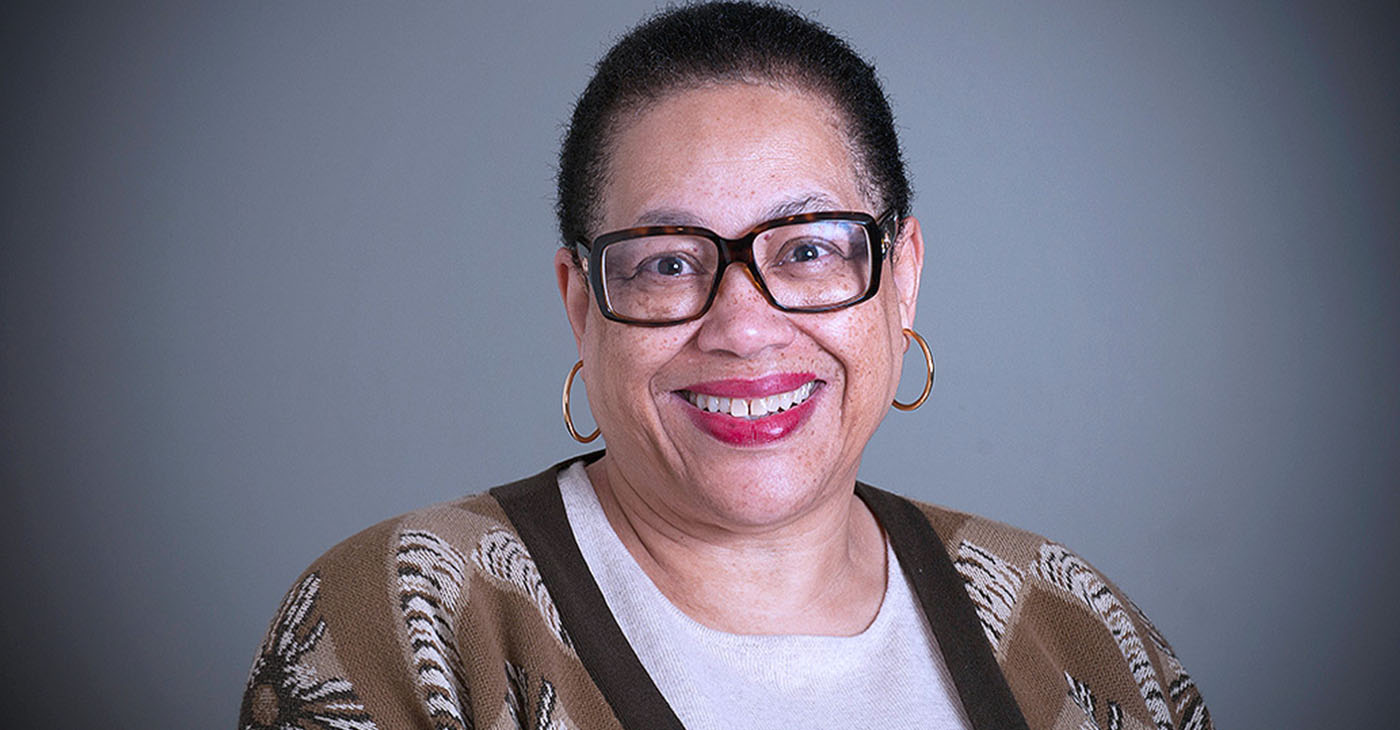Charlene Crowell
COMMENTARY: Don’t Let Predatory Tax Loans Take Your Refunds
NNPA NEWSWIRE — “…across the country, advertising – particularly on urban radio – tempts listeners with easy ways to get a loan against anticipated tax refunds. But just like other predatory lending products, what is advertised is not quite what consumers receive.”
By Charlene Crowell, NNPA Newswire Contributor
For many consumers, the New Year brings an annual effort to file taxes early enough to help pay off big bills, replace major appliances or tuck away a few bucks for the proverbial ‘rainy day’.
With a continuing federal shutdown, this year there are also an estimated 800,000 federal workers who have not had a payday since December. For these consumers, an early tax refund could cover basic living needs like housing, food, child care and utilities.
And across the country, advertising – particularly on urban radio – tempts listeners with easy ways to get a loan against anticipated tax refunds. But just like other predatory lending products, what is advertised is not quite what consumers receive. Convenient tax-related loans almost always come with a price that takes a big bite out of consumers’ money.
The bigger the refund, the more attentive and helpful “tax preparers” will be in helping with e-filing, the electronic processing that typically results in refunds in two to three business days. Once the size of the refund is known, these preparers encourage unsuspecting consumers to take out a short-term loan like a Refund Anticipation Loan (RAL). Depository institutions like banks sell a ‘service’ known as a Refund Anticipating Check (RAC) that is most appealing to consumers who lack a bank account.
Neither product is as helpful as they appear.
RALs are usually marketed as an ‘advance’ instead of a loan. Instead of interest, many of these loans come with “fees” or a “finance charge.” Conversely, a Refund Anticipation Check or RAC is sold as a temporary bank account that exists exclusively to receive the IRS refund. Once the refund reaches the consumer’s bank account, either a prepaid card or a check is issued by the depository institution. And once again, fees taken out of the refund reduce the amount of monies that consumers actually receive.
The biggest target for both of these products are consumers with the largest refunds, especially those who are eligible for the Earned Income Tax Credits (EITCs), one of the few tax break programs available to low-to-moderate income consumers, and/or the Additional Child Tax Credit.
To be eligible for EITC, earned income and adjusted gross income can be as low as $15,270 for a single filer or head of household to as high as $54,884 for a married couple with three dependent children. This year, eligible EITC consumers could receive as much as $6,431 for families with three or more qualifying children to $519 for single filers.
Similarly, the Child Tax Credit is available to eligible filers with children under the age of 17. For each dependent child meeting the age requirement, filers receive a $2,000 credit that like EITC reduces the amount of taxes owed.
In 2017, 1.7 million RALs were sold, and another 20.5 million RACs valued at a half billion dollars were also sold, according to the National Consumer Law Center (NCLC).
“Tax-time is hard enough for most Americans, but they also face consumer protection challenges,” noted Chi Chi Wu, staff attorney at the National Consumer Law Center. “They need to avoid incompetent and abusive preparers and decide whether to choose financial products of varying costs.”
So how much financial sense does it make to purchase an ‘advance’ or open a temporary bank account when the Internal Revenue Service can deposit the full refund into a checking account within two to three business days?
Just because a refund-advance product isn’t called a loan, or doesn’t have an interest rate, doesn’t mean it’s free, said Scott Astrada, the Center for Responsible Lending’s Director of Federal Advocacy. “Carefully read the terms and conditions and ask plenty of questions”.
Everyone who works for a living should be entitled not only to a paycheck but 100 percent of their tax refunds.
Charlene Crowell is the Center for Responsible Lending’s Communications Deputy Director. She can be reached at Charlene.crowell@responsiblelending.org.
#NNPA BlackPress
Consumer Financial Protection Bureau Gives a Green Light to Predatory Payday Lenders
NNPA NEWSWIRE — “There is never a good time to enable predatory loans carrying 400% interest rates,” noted Mike Calhoun, President of the Center for Responsible Lending (CRL), “but this is the worst possible time. The pain caused by the CFPB gutting the payday rule will be felt most by those who can least afford it, including communities of color who are disproportionately targeted by payday lenders.”

Ability-to-Repay Stripped from Regulation
By Charlene Crowell, Senior Fellow with the Center for Responsible Lending
As COVID-19 continues to wreak havoc throughout the country, the Consumer Financial Protection Bureau (CFPB) recently took an ill-advised and untimely action. On July 7, the agency gutted its own 2017 payday rule that required lenders to first determine whether a consumer could afford to repay the high-cost loan.
This regulatory reversal represents a financial favor to payday and car-title lenders, and certain harm to consumers who are just a few hundred dollars short for their monthly expenses. In very real and measurable ways, the agency created to protect consumers gave a green light to predatory lenders to continue to prey upon the nation’s poorest and most vulnerable consumers.
“There is never a good time to enable predatory loans carrying 400% interest rates,” noted Mike Calhoun, President of the Center for Responsible Lending (CRL), “but this is the worst possible time. The pain caused by the CFPB gutting the payday rule will be felt most by those who can least afford it, including communities of color who are disproportionately targeted by payday lenders.”
The COVID-19 pandemic has jeopardized the ability of people to safely go to work, altered how students try to continue their studies, and imposed grim realities in meeting life’s most basic needs like food, shelter, and utilities.
Consumers affected by job layoffs should also mark their calendars for July 31. On that day, the additional $600 in monthly federal unemployment benefits through the CARES Act will expire. Additionally, renters who have managed to preserve their housing even when they could not pay, should also be mindful of whether eviction notices will come their way. Either of these circumstances carry the potential for America’s most cash-strapped consumers to seek and become financially trapped in unaffordable predatory loans.
The lure of ‘quick and easy’ cash entraps an estimated 12 million American consumers each year. Instead of a short-term financial fix, most loans last several months or longer to fully repay. CRL research finds that the typical payday loans are in strings of 10 or more. Further, the amount of interest paid on the loan often exceeds the dollars originally borrowed.
Even with decades of consumer advocacy, triple-digit interest on payday loans remains legal in 34 states. In these locales, the profusion of payday and car-title stores located in Black and other communities of color increases the likelihood of consumers becoming financial prey that ensures lenders of an annual $8 billion in fees alone. The growth in online lending increases access to these loans.
“By disproportionately locating storefronts in majority Black and Latino neighborhoods,” observed Rachel Gittelman, Financial Services Outreach Manager with the Consumer Federation of America, “predatory payday lenders systematically target communities of color, further exacerbating the racial wealth gap.”
Historically, Blacks have been disproportionately affected by unemployment compared to other racial and ethnic groups. That trend continues to hold in the midst of the pandemic. As of early July, and according to the Bureau of Labor Statistics, 17.8 million people were unemployed. Black unemployment at 15.4%, was closely followed by that of Latinos at 14.5%. By comparison, only 10% of whites were unemployed. However, multiple news outlets report that the nation’s total unemployed since the spring onset of the pandemic is 30 million.
“The CFPB has no basis for gutting the heart of common-sense protections that merely required payday lenders to do what responsible lenders already do: ensure that the borrower has the ability to repay,” noted Lauren Sanders, the National Consumer Law Center’s Associate Director. “The evidence to support the debt trap of payday loans is overwhelming and the CFPB’s flimsy excuses for repealing protections do not stand up.”
Earlier this year, a poll conducted by Morning Consult and commissioned by CRL found strong and bipartisan support for a 36% rate cap on payday and installment loans. With a 70% national majority, voters supported the double-digit rate cap. On a state-by-state basis, voter support for a rate cap had a range of 64-73%. Further 62% of polled voters had an unfavorable view of payday lenders.
With nearly half of American adults living in households that have experienced a loss of income, and more than 40% of adults delaying medical care due to financial concerns, there is no justification for abandoning consumer financial protections.
If a 36% rate cap is good enough for the nation’s military be protected from predatory lending – which is the law for service members under the federal Military Lending Act — it is time to extend that same protection to the civilian population.
Charlene Crowell is a senior fellow with the Center for Responsible Lending. She can be reached at charlene.crowell@responsiblelending.org.
#NNPA BlackPress
$349 billion COVID-19 Small Business Program short-changes businesses of color
NNPA NEWSWIRE — The Center for Responsible Lending (CRL) estimated that as many as 95% Black-owned businesses stood no chance of securing a program loan. Other communities of color were similarly likely to be shut out as well: 91% of both Latino-owned and Native Hawaiian or Pacific Islander-owned businesses were financially shortchanged.

Federal lawsuits allege systemic lending biases that place 8.7 million jobs at risk
By Charlene Crowell, NNPA Newswire Contributor
A $349 billion program created to assist America’s small businesses was launched on April 3 to provide payroll, utilities, rent and more for eligible applicants screened by the U.S. Small Business Administration (SBA). On April 16 – less than two weeks later — this national stimulus enacted in the throes of the COVID-19 pandemic, ran out of funds. In separate but related legal actions, federal lawsuits were filed, challenging the lack of equitable access to the stimulus program.
On April 19, four class action lawsuits challenged banks’ use of PPP funds. Filed separately in the U.S. District Court’s Central California office, the lawsuits are against Bank of America, JP Morgan Chase, U.S. Bank and Wells Fargo.
While this legal process unfolds, the Center for Responsible Lending (CRL) estimated that as many as 95% Black-owned businesses stood no chance of securing a program loan. Other communities of color were similarly likely to be shut out as well: 91% of both Latino-owned and Native Hawaiian or Pacific Islander-owned businesses were financially shortchanged.
At the same time, businesses of color together are responsible for employing 8.7 million people and represent 30% of all U.S. businesses. Additionally, the combined contributions that these businesses make to the national economy is a noteworthy $1.38 trillion.
Days later on April 21, an additional $310 billion for the Paycheck Protection Program (PPP) was approved by the U.S. Senate and is expected to be quickly passed in the U.S. House. Even so, some reactions to the new funding suggested that it was still too little and needs to better address how Black and other businesses of color can fully participate.
“This bill distributes most of the funding again to large banks that prioritized wealthier businesses over small ones,” said Ashley Harrington, Federal Advocacy Director with the Center for Responsible Lending (CRL). “Businesses of color were locked out of round one of the SBA PPP, and this Congress proposal fails to assure that they will have fair access to the new $60 billion small business appropriation. Nor does it ensure equity and transparency by requiring data tracking on borrower demographics and loan amounts to be collected or reported.”
“While it is a good and necessary change to include set-asides for community banks to reach more businesses and rural areas, the bill fails to dedicate targeted funds for use by minority depository institutions (MDIs), and community development financial institutions (CDFIs),” added Harrington. “These are the institutions with a strong track record of serving borrowers of color. Both MDIs and CDFIs should have access to this vital small business support.”
The set-asides included in the new appropriations bill allocate monies to institutions based on bank size alone. Since over 98% of banks and credit unions fall into the allocation that includes CDFIs and MDIs, it is highly unlikely that these institutions will be able to access the funds – especially as the monies will have run out before these two types of institutions would be able to secure SBA approval.
The new set-asides included in the new appropriations bill allocates monies to institutions based on bank size alone. This provision places CDFIs and MDIs in direct competition with better resourced smaller institutions like community banks for loan funds.
PPP was a federal response that was supposed to supply funds through June 30 to small businesses and nonprofit organizations. It was created as part of a $2 trillion, national rescue plan authorized through the CARES Act. Instead, it is now no longer accepting applications or approving new lenders in the program. The program’s loans were capped to no more than $10 million and came with an explicit exclusion of businesses based outside of the United States. For six months, loan payments would be suspended and under specific and verifiable conditions, the loans also could be completely forgiven.
PPP applicants were required to interact with banks and other existing SBA lenders. For communities of color, this specific condition meant beginning, not continuing or expanding financial relationships. Fees paid by the federal government to participating financial institutions were based on the size of loans approved for originating program loans. For example, American Banker reported recently that on a $10 million loan, bank fees would be $100,000, and fees for a $350,000 loan would be $17,500.
Together, these two program requirements gave larger small businesses quicker and greater access to these loans. Instead of providing needed relief for struggling businesses, the PPP is just the latest iteration of federal funding and resources being systematically withheld from individuals and people of color.
A similar reaction to the exhaustion of funding was expressed by Orson Aguilar, director of economic policy for UnidosUS (formerly LaRaza) that champions rights for Latinos.
“We know that many companies did not benefit because they do not have banking relationships and that is a requirement,” said Aguilar.
Through the assistance of the Leadership Conference on Civil and Human Rights, 111 organizations across the country, including CRL, jointly told Congress their collective concerns over the exclusion of relief to communities of color in the federal pandemic response.
“Communities that have already been marginalized by structural barriers to equal opportunities and who have low levels of wealth are particularly vulnerable during this current emergency,” wrote the civil rights advocates in an April 16 letter. “While many working people have been sidelined, many others are still providing essential services during the crisis – working at our grocery stores, delivering mail and packages, and providing care to vulnerable people – putting their lives at risk, often at reduced hours and wages, to keep our country running.”
“The ongoing crisis has laid bare the structural racism and barriers to opportunity that are entrenched in our society, and our collective actions now must not worsen them,” concluded the coalition.
CRL identified specific ways in which the COVID-19 federal response can become more inclusive. Its PPP recommendations include:
- Dedicate 20% of all new funding to businesses of color;
- At least $25 billion in funding for MDIs and CDFIs;
- Provide an alternative PPP loan of up to a $100,000 that can be forgiven and better fits the needs of very small businesses;
- Adjust program rules to serve more small businesses and ensure equity and transparency by requiring all lenders to provide both borrower demographics and loan amounts;
- Expand outreach and enrollment assistant through community development corporations and community-based organizations.
“The Great Recession drained communities of color of a trillion dollars of wealth that they have yet to recover,” concluded Mike Calhoun, CRL President. “They should not be excluded from one of the largest COVID-19 relief programs. We cannot allow that to happen again.”
Charlene Crowell is a Senior Fellow with the Center for Responsible Lending. She can be reached at charlene.crowell@responsiblelending.org.
#NNPA BlackPress
COVID-19 financial warning: Consumers and banks should stay away from payday loans
NNPA NEWSWIRE — Zeroing in on the economic impacts of the crisis, people everywhere are struggling with competing needs in their lives. When living costs exceed available financial resources, tough times lead to tough decisions about how to feed families, keep a home to live in, ways to keep utilities working and a myriad of other day-to-day needs.
By Charlene Crowell, NNPA Newswire Contributor
For the foreseeable future, ‘normal’ life will be indefinitely suspended due to the global pandemic known as the coronavirus.
Record-breaking employment layoffs in the month of March resulted in the Department of Labor reporting that 10.4 million consumers lost their jobs and filed for unemployment compensation. As medical experts continue to track the virus, the New York Times reported at least 214,461 known infections and at least 4,800 related deaths.
Beyond these statistics, untold numbers of additional school and retail closures, and an expanding army of people working from home have also been directly affected by the virus.
Consumers both young and old have passed as the virus continues to spread across the country. Its viral wrath has spawned hot spots from the Pacific Northwest’s Seattle, to the Gulf Coast’s New Orleans, the Midwest’s Detroit and the nation’s largest urban metropolis, New York City.
Zeroing in on the economic impacts of the crisis, people everywhere are struggling with competing needs in their lives. When living costs exceed available financial resources, tough times lead to tough decisions about how to feed families, keep a home to live in, ways to keep utilities working and a myriad of other day-to-day needs.
Despite a $2 trillion federal rescue enacted with bipartisan support, checks of $1,200 promised to taxpayers, along with an additional $500 per child will arrive too late for first of the month April payments for bills like mortgages and rental payments. Many leaders also warn that despite its size or range of areas addressed, the legislation was not enough.
In a March 27 House floor statement, Congresswoman Maxine Waters, Chairwoman of the House Financial Services Committee warned colleagues that their job was not yet complete.
“[I] must make clear that the legislation is far from comprehensive, and that there are issues it leaves unaddressed and areas where it falls short…The American people need help now and this bill represents a down payment on that relief,” said Waters.
A similar reaction came from AARP chief executive Jo Ann Jenkins.
“Older Americans face the one-two punch of coronavirus’s health and economic consequences, and many need immediate relief and ongoing help and support to cope with the pandemic,” noted Jenkins. “Those needs are only set to grow in the weeks and months ahead.”
What can really make a difference between life’s success and failure is not just what leaders do but also what they didn’t do when they had the chance. The recent legislative package was silent on interest rates, as well as forgiveness of federal student loans, negative credit reports or bans on private evictions for late rental payments.
As the cost of living has risen faster and higher than most consumer incomes for more than a decade, the likelihood of a savings account large enough to cover household expenses for a month or more is slim to none.
The Consumer Financial Protection Bureau (CFPB), the agency tasked with protecting consumers from unscrupulous lenders has been conspicuously subdued. Instead of forceful and timely agency alerts via multi-media communications warning consumers about opportunistic scam artists, CFPB has offered a modest tip sheet on how consumers – not government – can protect themselves. Fortunately, as the viral saga unfolds, some news outlets are reporting on the potential harms of consumers turning to payday and car-title loans.
A joint response by five federal regulars – Board of Governors of the Federal Reserve System, Consumer Financial Protection Bureau (CFPB), Federal Deposit Insurance Corporation (FDIC), National Credit Union Administration (NCUA), and the Office of the Comptroller of the Currency (OCC) – came on March 26 in a statement that encouraged banks, savings and loans, and credit unions to offer “responsible small dollar loans” to consumers and small businesses during the pandemic.
According to the regulators, “responsible small-dollar loans can play an important role in meeting customers’ credit needs because of temporary cash-flow imbalances, unexpected expenses, or income disruptions during periods of economic stress or disaster recoveries.”
Without any specifics defining “reasonable small dollar loans”, the regulators’ statement could be an inducement to join triple-digit lenders’ financial exploitation.
For Black America and other communities of color, predatory short-term loans of $500 or less began decades ago when payday and car-title storefronts took prominent residence in our neighborhoods across the country. Loans that were marketed as quick fixes for millions of consumers morphed into long-term financial nightmares that deepened debt with every renewal. In many cases, the interest paid on these loans was often double or triple the amount of principal borrowed.
A coalition of civil and consumer rights organizations released a joint statement warning of the possible spike in high-cost lending by the nation’s depository institutions – banks, credit unions and savings and loans.
“This is the worst possible time for banks to make predatory payday loans,” said Americans for Financial Reform Education Fund, the Center for Responsible Lending, Leadership Conference for Civil and Human Rights, NAACP, National Consumer Law Center.
“Around the time of the last recession, a handful of banks issued ‘deposit advances’ that put borrowers in an average of 19 loans a year at over 200% annual interest,” continued the leaders. “These bank payday loans disproportionately harmed the financially vulnerable and badly damaged banks’ reputations. Since 2013 when regulatory guidance warned against this form of credit, banks have mostly stayed away. We trust that they will continue to do so as they do not want to repeat mistakes of the past.”
Charlene Crowell is a senior fellow with the Center for Responsible Lending. She can be reached at charlene.crowell@responsiblelending.org.
-

 Activism4 weeks ago
Activism4 weeks agoOakland Post: Week of March 27 – April 2, 2024
-

 #NNPA BlackPress4 weeks ago
#NNPA BlackPress4 weeks agoCOMMENTARY: D.C. Crime Bill Fails to Address Root Causes of Violence and Incarceration
-

 #NNPA BlackPress4 weeks ago
#NNPA BlackPress4 weeks agoFrom Raids to Revelations: The Dark Turn in Sean ‘Diddy’ Combs’ Saga
-

 #NNPA BlackPress4 weeks ago
#NNPA BlackPress4 weeks agoCOMMENTARY: Lady Day and The Lights!
-

 #NNPA BlackPress4 weeks ago
#NNPA BlackPress4 weeks agoMayor, City Council President React to May 31 Closing of Birmingham-Southern College
-

 #NNPA BlackPress4 weeks ago
#NNPA BlackPress4 weeks agoBaltimore Key Bridge Catastrophe: A City’s Heartbreak and a Nation’s Alarm
-

 #NNPA BlackPress4 weeks ago
#NNPA BlackPress4 weeks agoBaltimore’s Key Bridge Struck by Ship, Collapses into Water
-

 #NNPA BlackPress4 weeks ago
#NNPA BlackPress4 weeks agoBeloved Actor and Activist Louis Cameron Gossett Jr. Dies at 87





















































